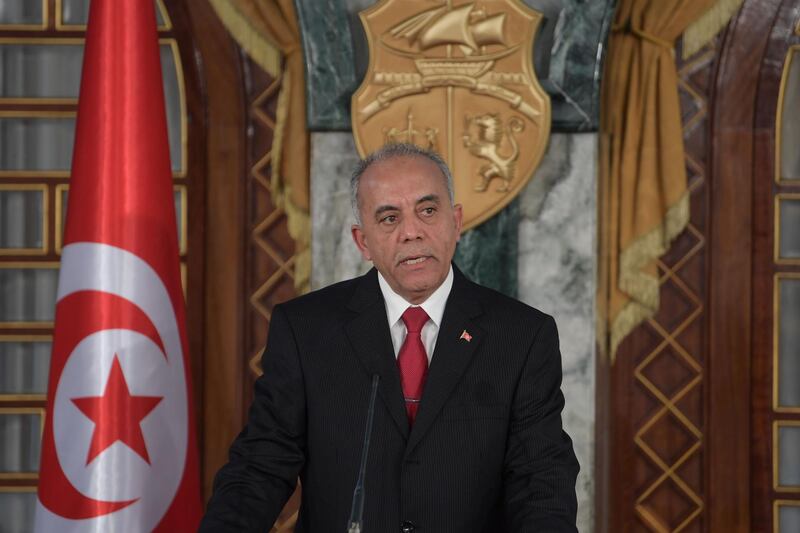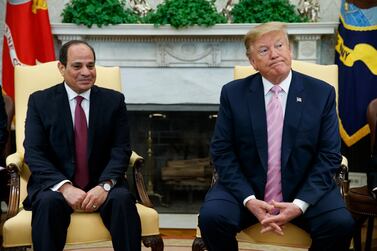Tunisian President Kais Saied has approved a new government proposed by Prime Minister-designate Habib Jemli made up of political independents, handing the list to parliament to vote on.
Mr Jemli named former finance ministry official Abderrahmen Khachtali to be finance minister and Tunisia's ambassador to Jordan, Khaled Shili, as foreign minister.
Imed Darouiche has been proposed for defence minister, Soufiene Sliti as interior minister and Hedi Kediri as justice minister. The existing tourism minister, Rene Trabelsi, would stay in his post.
The prime minister-designate said in a televised statement that his proposed cabinet had majority support in the deeply fractured parliament elected nearly three months ago.
But his office said on Wednesday night that more consultations were needed before Parliament was able to vote on the finalised list of names.
A vote in parliament will be scheduled by the speaker, Rached Ghannouchi, who heads the moderate Islamist Ennahda party. The group came first in the October 6 election with 52 of the 217 seats and nominated Mr Jemli as prime minister.
Mr Saied, an independent who won his own election a week later, then formally requested Mr Jemli to build a coalition that could command a majority in Parliament.
He has said his government will focus on the economy, a subject that has bedevilled all administrations in Tunisia since its 2011 revolution that introduced democracy.
The outgoing government has made painful cuts to reduce the public deficit, but the International Monetary Fund and other foreign lenders are seeking more fiscal reforms.
Anger at public services that people believe have deteriorated since the rule of longtime Tunisian dictator Zine El Abidine Ben Ali, who died in exile in September, has undermined the trust of some Tunisians in the political establishment.
Mr Saied has struggled to bring rival parties together during coalition talks but said on Wednesday that all parties would support the new government "one way or another", without giving specifics.
He has urged action against state corruption but has little direct control over policy, except in foreign affairs and security.






